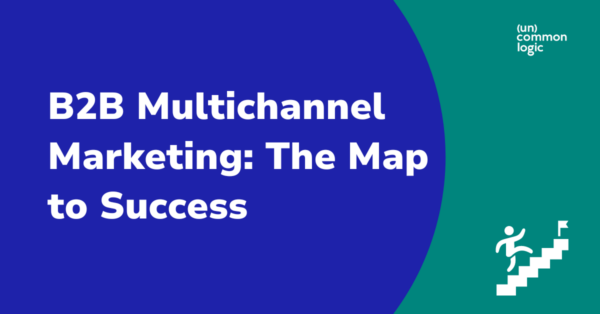
READY TO WORK WITH A RESULTS-ORIENTED PARTNER WITH DEEP DIGITAL MARKETING EXPERIENCE HELPING B2B SAAS COMPANIES GROW?
You've reached the right place.
OUR B2B SAAS DIGITAL MARKETING APPROACH
When we work on B2B SaaS digital marketing, we start by understanding your company’s business goals. These vary so much from company to company, and can include:
- VISIBILITY & EDUCATION
- CONVERSIONS
- CUSTOMER AQUISITION
- REVENUE
- LEAD GENERATION
- AND MORE
All of these goals require different approaches, channels, and tactics. Each client’s digital marketing strategy is customized to reflect those goals…and after working with many SaaS clients over our the past 16 years, we’ve also become experts at pivoting as your market and goals change.


Next we work to understand what you have in place to achieve your goals. We will become familiar with your current digital marketing efforts and learn about your sales team and the sales process & cycle.
Understanding your current situation includes a deep dive into your analytics and conversion actions.
WHAT DO OUR SAAS CLIENTS THINK ABOUT OUR (UN)COMMON APPROACH?
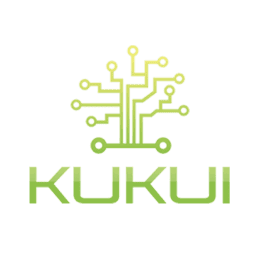


And those clients aren't the exception. They're the rule. Our approach and our team mean we have an unheard of 81% client retention rate.
B2B SaaS Digital Marketing Services to Help your Business to Scale
Paid Media for SaaS
Our SaaS paid media plans use our understanding of your sales and marketing goals, your sales process, combined with SaaS paid media considerations (low-volume keywords vs broad/expensive keywords, for example) to develop a customized full-funnel strategy for your business.
PPC Campaign: Increased Demo Requests 143% Within First 3 Months
PPC: Increased SQL Volume by 260% while Decreasing CPL by 64% from Q2 to Q4
SEO & PPC: Combined SEO & PPC Efforts led to +1,000% ROI for B2B Construction Company
SEO Services for SaaS
Search engine optimization (SEO) for SaaS requires a deep understanding of not only how search engines crawl and index, but also how potential buyers and influencers might be searching for SaaS solutions.
SEO: Increased Organic Clicks 29% & Average Position 12% in 2 Months
SEO: Increased Monthly Organic Revenue by $320,000 in One Quarter
Conversion Rate Optimization for SaaS
SaaS businesses come in many different types: some offer business solutions to well-known problems, others to problems that potential buyers don’t yet realize they have. When a potential buyer or member of a buying committee comes to your website, it’s essential that it is easy to understand and navigate in order to help them learn about your solution and convert.
CRO: Significant Increase in Mobile Registration Rates Through Copy and Design Testing
Conversion Rate Optimization Services: Increased Conversion Rate 550% with Redesigned Homepage
CRO Services: Increased Demo Form Conversion Rate 84% in 7 Months
The results we drive for our clients are one of the many reasons we’re a Google Partner, Microsoft Advertising Select Partner, Meta Business Partner, and Google Analytics Certified Agency.
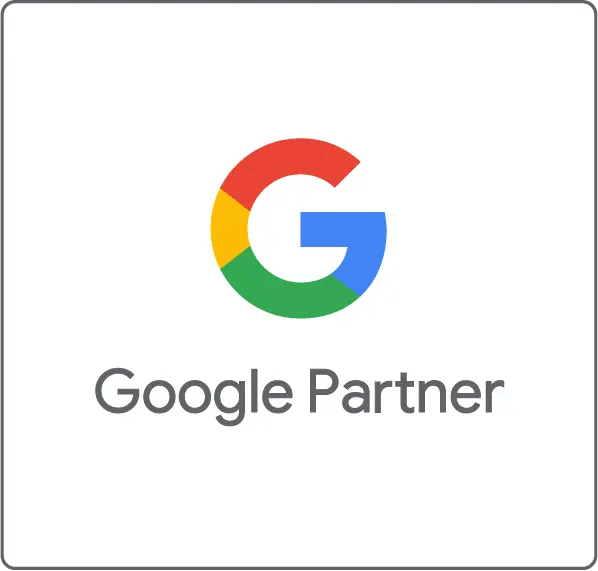
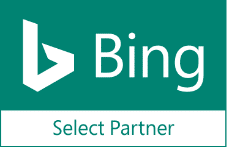
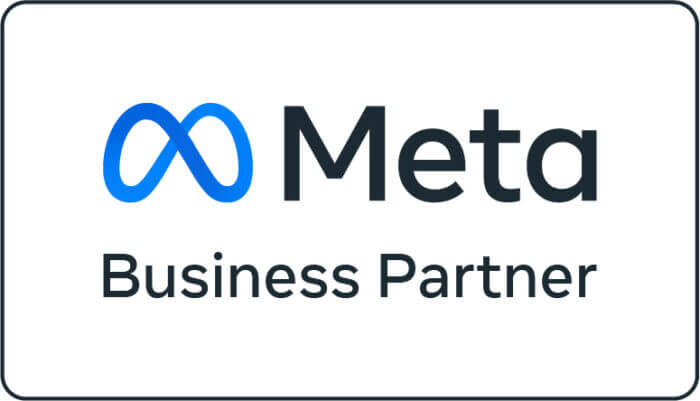
This, along with our culture – where we actually live by our values, not just put them on the wall in the kitchen – is the reason we have an 82% employee retention rate.
This means your SaaS account team will bring you deep experience and consistency.
Our team is also the reason we’ve been awarded the Top Workplace in Austin nine times (no other agency has won more than once).

Common vs. (un)Common Account Management
CHECK OUT OUR B2B BLOG SERIES
READY FOR AN (UN)COMMON AGENCY EXPERIENCE?
B2B SaaS Marketing Services for Companies: Frequently Asked Questions (FAQs) for B2B SaaS Companies
Can you share B2B SaaS case studies?
B2B
SaaS
case studies that include, PPC, SEO, CRO, and social media. See the list ofB2B SaaS
case studies below:CRO: Redesigned Navigation Led to a 200% Increase in Conversions
SEO & PPC: Combined SEO & PPC Efforts led to +1,000% ROI for B2B Construction Company
PPC: Increased SQL Volume by 260% while Decreasing CPL by 64% from Q2 to Q4
PPC: 671% Increase in Twitter Followers at a Low Cost-Per-Follow
PPC: New CRM feedback Loop led to $207K Increase in Potential Revenue
SEO: Keyword Efforts Led to Position 1 Rankings within 60 Days
SEO: Improved Keyword Position by 20% & Doubled PageSpeed Score
PPC: 98% Increase in Leads & 39% Decrease in Cost per Lead
PPC: 438% Increase in CVR & 43% Decrease in CPL
SEO: Increased Organic Conversions 183% After Site Relaunch
PPC: Increased Leads by 11800% at a 97% Lower CPL
SEO: Increased Traffic 136% YoY Through Content & Technical Improvements
CRO Services: Increased Demo Form Conversion Rate 84% in 7 Months
CRO: Improved Conversion Rate & Engagement Metrics Through Layout & Page Design Testing
CRO: Increased Conversions & User Flow Via Layout & Design Testing
PPC Social: Increased Leads 29X Month over Month Through Social Lead Gen Testing
SEO: Increased Visibility & Registrations in 1 Year for B2B Auto Industry Client
PPC: Increased Leads 22x Over One Year for Wholesale Auto Dealer Platform
SEO: Improved Visibility & Drove Leads via Keyword Optimization & Data-Driven Content Development
CRO: Significant Increase in Mobile Registration Rates Through Copy and Design Testing
If you are looking for B2B SaaS Marketing Services that drive business results
, contact us today!
What are the most popular B2B SaaS marketing metrics to report on?
- Monthly Recurring Revenue (MRR):
- Measures the predictable and recurring
revenue
generated from subscriptions on a monthly basis.
- Measures the predictable and recurring
- Customer Acquisition Cost (CAC):
- The total
cost
incurred to acquire a new customer, including marketing and sales expenses, divided by the number of new customers acquired within a specific period.
- The total
- Customer Lifetime Value (CLTV or LTV):
- Predicts the total revenue a customer is expected to generate throughout their relationship with the company. It helps in determining the long-term profitability of acquiring a customer.
- Churn Rate:
- Measures the rate at which customers cancel or do not renew their subscriptions over a given period. High churn can indicate issues with product-market fit or customer satisfaction.
- Conversion Rate:
- Tracks the percentage of website visitors or leads that convert into paying customers. It’s a vital metric for evaluating the effectiveness of
marketing campaigns
and sales efforts.
- Tracks the percentage of website visitors or leads that convert into paying customers. It’s a vital metric for evaluating the effectiveness of
- Average Revenue Per User (ARPU):
- Calculates the average revenue generated per user over a specific period. ARPU helps in understanding the value individual customers bring to the business.
- Customer Engagement Metrics:
- Metrics like user engagement, product usage, and feature adoption rates provide insights into how actively customers are using the SaaS product and can indicate overall satisfaction and potential for upselling.
- Net Promoter Score (NPS):
- Measures customer loyalty and satisfaction by asking customers how likely they are to recommend the product to others. It’s a valuable indicator of customer sentiment and can influence brand reputation and growth.
- Lead-to-Customer Conversion Rate:
- Tracks the percentage of sales leads that ultimately convert into paying customers. It helps in assessing the effectiveness of the sales funnel pipelines and lead nurturing strategies.
- Return on Investment (ROI):
- Evaluates the profitability of marketing campaigns and initiatives by comparing the revenue generated to the costs incurred. It’s essential for optimizing marketing spend and maximizing returns.
What is a B2B SaaS marketing agency?
B2B SaaS marketing
agency
specializes in providing marketing services specifically tailored toSoftware as a Service (SaaS) companies
that primarily target other businesses (B2B). TheseB2B marketing agencies
offer expertise indigital marketing
, content marketing, lead generation, branding, and customer acquisition strategies, all customized for theB2B SaaS
landscape. Importance of B2B SaaS Marketing Agencies:- Specialization: A
B2B
service agency understands the nuances of marketing in the SaaS industry, allowing them to develop tailored strategies that resonate withB2B
audiences. - Efficiency: Focused solely on
B2B SaaS
, they deliver highly efficientmarketing
campaigns, leveraging industry-specific best practices and insights. - Scalability: They help SaaS companies scale their marketing efforts to reach new customers and expand into new markets, driving sustainable and steady growth.
- Expertise in Customer Acquisition: They excel in customer acquisition strategies, attracting high-quality leads and converting them into paying customers.
- Measurable Results: With a data-driven approach, they track and measure campaign performance, providing actionable insights to optimize strategies and maximize
ROI
.
What are the benefits of working with a B2B SaaS marketing company?
B2B
SaaS
marketing company
offers several distinct benefits compared to a regular marketing firm:- Specialized Expertise:
B2B SaaS marketing companies
have specialized knowledge and experience in marketing software as a service (SaaS) products. This expertise allows them to understand the unique challenges and opportunities within the industry, leading to more effective strategies and campaigns tailored to SaaS businesses. - Understanding of SaaS Metrics:
B2B SaaS marketers
are familiar with key metrics such as customer lifetime value (CLV), customer acquisition cost (CAC), and churn rate. They know how to optimize these metrics to drive sustainable growth for SaaS companies. - Knowledge of SaaS Sales Funnel:
B2B SaaS
marketing companies
understand the intricacies of theSaaS
sales funnel, from lead generation to customer retention. They can develop strategies that align with each stage of the funnel to maximize conversions and revenue. - Tech-Savvy Approach: B2B
SaaS marketers
are tech-savvy professionals who are proficient in leveraging digital tools and platforms to reach and engage with target audiences effectively. They stay updated on the latest trends and technologies in the SaaS space to ensure their strategies remain cutting-edge. - Focus on ROI:
B2B SaaS marketing
companies prioritize return on investment (ROI) and are adept at tracking and analyzing campaign performance. They use data-driven insights to make informed decisions and continuously optimize marketing efforts for maximum ROI. - Integration with SaaS Platforms: B2B SaaS marketing
companies
often have experience working with popular SaaS platforms such as HubSpot, Salesforce, and Marketo. This familiarity allows for seamless integration and optimization ofmarketing automation
and analytics tools. - Industry Connections:
B2B
SaaS marketing
companies may have established relationships with industry influencers, thought leaders, and media outlets relevant to the SaaS space. Leveraging these connections can help amplify a SaaS company’s brand presence and credibility. - Agility and Flexibility: B2B SaaS marketing companies are accustomed to the fast-paced and dynamic nature of the
SaaS industry
. They are agile and adaptable, able to quickly pivot strategies in response to market changes or shifts in customer behavior.
What are some things not generally known about B2B SaaS marketing services?
- Customer Journey Mapping: Understanding the complex path B2B buyers take from awareness to purchase involves extensive mapping and analysis, often involving multiple stakeholders and decision-making layers.
- Persona Development: B2B SaaS marketing dives deep into creating detailed buyer personas, which encompass not just individual traits but also organizational roles, pain points, and buying motivations.
- Content Mapping Across Funnel Stages: Content strategies in B2B SaaS marketing extend beyond awareness-building to nurturing leads through various funnel stages, from consideration to decision-making.
- Account-Based Marketing (ABM): ABM strategies in B2B SaaS focus on targeting entire accounts rather than individual leads, requiring precise alignment between marketing and sales efforts.
- Value-Based Messaging: Effective B2B SaaS marketing communicates the value proposition in terms of business outcomes and ROI rather than just product features.
- Long Sales Cycles: Unlike B2C SaaS, B2B sales cycles tend to be longer due to complex buying processes, multiple decision-makers, and regulatory considerations.
- Integration with Sales Teams: B2B SaaS marketing works closely with sales teams to ensure alignment on messaging, lead handoff processes, and customer engagement strategies.
- Thought Leadership and Authority Building: Establishing thought leadership through content, industry insights, and expert commentary plays a crucial role in gaining trust and credibility in the B2B SaaS space.
- Retention and Upselling Strategies: B2B SaaS marketing doesn’t end with acquisition; it involves ongoing efforts to retain customers, drive usage, and upsell additional products or features.
- Data-Driven Optimization: B2B SaaS marketers heavily rely on data analytics to track and optimize every aspect of their campaigns, from lead generation to customer retention.
- Channel Diversification: B2B SaaS marketing utilizes a mix of channels beyond traditional
digital marketing
, including events, webinars, industry partnerships, and targeted outreach. - Regulatory Compliance: Compliance with data privacy regulations like GDPR and CCPA is critical in
B2B SaaS marketing
, requiring careful handling of customer data and consent management. - Customer Success Collaboration: Marketing collaborates closely with customer success teams to gather insights, address customer pain points, and drive advocacy through case studies and testimonials.
- Internationalization Challenges: Expanding into international markets brings unique challenges in terms of localization, cultural nuances, and adapting marketing strategies to diverse audiences.
- Continuous Innovation: B2B SaaS marketing requires a culture of continuous innovation to stay ahead in a rapidly evolving landscape, including experimenting with new channels, technologies, and strategies.
What are the most important questions that a company needs to ask when looking for B2B SaaS marketing services?
When seeking B2B SaaS marketing services, companies should consider a range of factors to ensure they find the right fit. Here’s a comprehensive list of important questions to ask:
- Experience and Expertise:
- What experience does the agency have specifically with
B2B SaaS companies
?
- Can they provide examples of successful campaigns or clients in the B2B SaaS space?
- What specialized expertise do they have in digital marketing strategies for SaaS products?
- What experience does the agency have specifically with
- Target Audience Understanding:
- How do they conduct research to understand our target audience and buyer personas?
- Can they demonstrate a deep understanding of the B2B SaaS industry and its nuances?
- What tactics do they use to tailor marketing efforts to our specific target audience?
- Content Strategy:
- How do they approach content creation for B2B SaaS products?
- What types of content do they recommend for each stage of the buyer’s journey?
- Do they have experience creating educational content around complex SaaS solutions?
- Lead Generation and Conversion:
-
What strategies do they employ for lead generation in the B2B SaaS space?
-
How do they nurture leads and move them through the sales funnel?
- Can they provide examples of successful lead generation campaigns for similar clients?
-
- Marketing Technology Stack:
- What marketing tools and technologies do they use, and how do they integrate with our existing systems?
- Are they proficient in utilizing
marketing automation
platforms and CRM systems commonly used in B2B SaaS?
- Data Analysis and Reporting:
- How do they measure and analyze the performance of marketing campaigns?
- Can they provide insights into how they use data to optimize strategies and improve ROI?
- What reporting frequency and format do they offer, and what key metrics do they track?
- Alignment with Sales:
- How do they ensure alignment between marketing and sales teams to maximize lead conversion?
- Do they have experience working with sales enablement strategies for B2B SaaS products?
- Can they provide examples of successful collaboration between marketing and sales departments?
- Agile Approach and Flexibility:
- How adaptable are they to changes in the market or shifts in our enterprise goals?
- Do they follow an agile marketing methodology, and how do they handle iterations and optimizations?
- Client References and Testimonials:
- Can they provide references from other B2B SaaS clients?
- What do their existing clients say about their B2B SaaS marketing services and results?
- Cost and Budget Allocation:
- What is their pricing structure, and how do they allocate budget across different marketing channels?
- Are there any hidden fees or additional costs we should be aware of?
- Long-Term Strategy:
- What is their approach to long-term
marketing strategy
and sustainability for B2B SaaS companies?
- How do they envision our marketing efforts evolving over time?
- What is their approach to long-term
- Communication and Collaboration:
- What is their communication style and frequency of updates?
- How do they collaborate with internal teams to ensure transparency and alignment?
What should you consider when selecting a B2B SaaS Marketing Service?
B2B SaaS Marketing Services
:-
-
Expertise and Experience:
- Look for agencies with a track record in B2B SaaS marketing.
- Check their portfolio and client testimonials for evidence of successful campaigns.
-
Understanding of B2B SaaS Market:
- Ensure the agency understands the nuances of the B2B SaaS market, including buyer personas, industry trends, and pain points.
-
Services Offered:
- Evaluate the range of services offered, including SEO, PPC, content marketing, email marketing, and social media management.
- Assess if they offer specialized services tailored to SaaS, such as trial conversion optimization or customer retention strategies.
-
Data-Driven Approach:
- Choose an agency that emphasizes data-driven decision-making.
- Inquire about their use of analytics tools and methodologies for measuring and optimizing campaign performance.
-
Alignment with Goals and Values:
- Ensure the agency’s values align with yours and that they understand your business goals.
- Seek a partner who is willing to collaborate closely and adapt strategies based on your evolving needs.
-
Innovative Strategies:
- Look for agencies that stay abreast of emerging trends and are willing to experiment with innovative marketing strategies.
- Ask about their approach to leveraging new technologies or platforms for B2B SaaS marketing.
-
Client Communication and Transparency:
- Assess the agency’s communication style and frequency.
- Ensure they provide regular updates on campaign progress, challenges, and opportunities.
- Look for transparency in reporting, budget allocation, and strategy adjustments.
-
Budget and ROI:
- Consider the agency’s pricing structure and whether it aligns with your budget.
- Evaluate the potential
ROI of their B2B SaaS services
based on past performance and projected outcomes.
-
Team and Resources:
- Assess the qualifications and experience of the agency’s team members, including marketers, strategists, and analysts.
- Inquire about their capacity to handle your account effectively and efficiently.
-
Client Support and Success:
- Seek references from current or past clients to gauge satisfaction levels and overall success.
- Inquire about the agency’s approach to client support and how they handle challenges or setbacks.
-
- Consider having your potential
B2B
SaaS Marketing Agencies
to be in the same time zone as you or even better if you look for a local B2B SaaS agency. For example if you live in California, hire a B2B SaaS Agency in Los Angeles or if you live in New York, then hire from a list ofB2B SaaS Marketing Agencies
found in New York City. The reason you want to do this is because you (as a business leader or marketer that needs information quickly) will be able to communicate throughout the working day and you avoid the problem of waiting extensive amount of times for a response when you need it.
If you are looking for B2B SaaS Marketing Services that drive business results
contact us today!
Common problems when selecting B2B SaaS marketing services?
Here’s a list of common problems when selecting
B2B SaaS marketing services
:
- Lack of understanding of the B2B SaaS market nuances.
- Limited experience in marketing to B2B audiences specifically.
- Difficulty in aligning marketing strategies with the unique value propositions of the SaaS product.
- Inadequate knowledge of the competitive landscape within the B2B SaaS industry.
- Challenges in creating effective messaging that resonates with B2B decision-makers.
- Insufficient expertise in leveraging digital marketing channels preferred by B2B buyers.
- Issues with accurately targeting the right B2B audience segments for the SaaS product.
- Problems with optimizing marketing efforts to generate qualified B2B leads for the sales team.
- Lack of integration between
marketing automation
platforms and SaaS product systems.
- Difficulty in measuring and attributing marketing ROI in the context of B2B SaaS sales cycles.
- Inability to adapt marketing strategies to the evolving needs and trends within the B2B SaaS market.
- Challenges in building trust and credibility with B2B decision-makers through marketing efforts.
- Problems with effectively nurturing leads through the complex B2B SaaS sales funnel.
- Limited understanding of regulatory compliance requirements specific to marketing B2B SaaS solutions.
- Difficulties in scaling marketing efforts alongside the growth of the B2B SaaS business.
- Insufficient resources or budget allocation for comprehensive B2B SaaS marketing campaigns.
- Issues with maintaining brand consistency and messaging coherence across various marketing channels.
- Lack of agility in responding to market changes and competitive shifts within the B2B SaaS industry.
- Challenges in differentiating the SaaS product from competitors in a crowded B2B market.
- Over reliance on growth hacking short term tactics that can stop working at any time.
- Inaccurate forecasting with either too many leads or being too conservative with estimates of how many leads will turn into a paying customer.
- Problems with aligning marketing goals and KPIs with broader business objectives for the
B2B SaaS company
.
What B2B SaaS Marketing Agencies would you consider competitors?
When you search for B2B SaaS Marketing Services or
B2B SaaS Marketing Agencies
, you can find the following competitors:
Smartbug Media,
Kalungi,
Bay Leaf Digital,
Huemor,
Skale,
Ninjapromo,
SimpleTiger,
IronPaper,
Animalz,
KraftBlick,
Inturact,
Klient Boost,
SeeResponse, Single Grain, Nextiva, Lift, CpgVision, Cobloom, Patch, Wallaroo Media, Vajra, Bamf Media, Refine Labs, Leaf digital, Heydigital, Redmond
and
Roketto
.
However, keep in mind that there are a lot of nuances when discussing
B2B SaaS companies
like quality of work, communication cadence, ability to pivot when needed, adjusting the
consulting
strategy based on the channel audits and your business goals.
Reach out to the (un)Common Logic team and request a free
digital marketing audit
to see how we can help your
B2B business
to attract more of their most profitable consumers.
Is PPC or SEO better for SaaS marketing services?
SEO (Search Engine Optimization)
play crucial roles inmarketing
SaaS
(Software as a Service) products and services. The effectiveness of each depends on various factors, including your specific goals, target audience, budget,niche brands
competitiveness, and timeline. Here’s a breakdown to help you decide which might be better suited for your SaaS marketing services: PPC (Pay-Per-Click):- Offers immediate visibility: With PPC, your ads can appear at the top of search engine results pages (SERPs) almost instantly, providing immediate exposure to your target audience.
- Targeted audience reach: PPC platforms like Google Ads allow you to target specific demographics, interests, and behaviors, ensuring your ads reach the right audience.
- Control over budget: PPC campaigns give you control over your spending, allowing you to set daily or campaign budgets and adjust them as needed.
- Measurable results: PPC platforms provide detailed analytics, allowing you to track the performance of your ads in real-time and make data-driven decisions to optimize campaigns.
- When PPC works in combination with conversion rate optimization (CRO), you are reducing
customer experiences
friction and improving landing page performance to get more return on your paid media investment.
SEO (Search Engine Optimization)
:- Long-term sustainability: While
SEO
results may take time to materialize, they can provide sustainable, long-term visibility and traffic to your website. - Cost-effective over time: Once your website ranks well organically, you can benefit from consistent traffic without incurring ongoing costs per click.
- Builds credibility and trust: High organic rankings signal to users that your website is authoritative and trustworthy, which can positively impact brand perception and increase conversions.
- Captures more organic traffic: Many users prefer organic search results over paid ads, so ranking well in organic search can capture a larger share of clicks.
PPC
and SEO strategies often yields the best results for effectiveSaaS marketing services
. For that savvyCMO
, we recommend that you consider the following approach to drivedemand
generation performance:- Use PPC (Google Ads, LinkedIn Ads, Facebook Ads) for immediate visibility and targeted campaigns, especially when launching new products or promotions.
- Invest in SEO for long-term sustainability and to build organic traffic and credibility over time to build up a solid pipeline machine and brand building.
- Continuously monitor and optimize both PPC and SEO efforts based on performance data to maximize ROI and achieve your
marketing goals
.
What role do analytics and reporting play in optimizing B2B SaaS marketing services?
When you work with our B2B SaaS Marketing Services, we will audit your GA4 analytics setup to ensure proper B2B marketing attribution is in place. Accurate tracking is the foundation of any successful B2B marketing strategy, and we believe that without it, digital marketing efforts can lead to misguided decisions and wasted budget.
This is why we double-check all tracking configurations and ensure every data point aligns with your business goals. By doing so, we provide reliable insights and actionable recommendations, empowering your company to achieve its B2B SaaS goals with confidence.
What industries or niches are a best-fit to leverage (un)Common Logic as your B2B SaaS consultant?
As a top service
B2B SaaS agency in the united states
, (un)Common Logic works with all industries and niches as we are an agnostic agency by choice and we have many reasons why. The most important reason is because we love learning from other industries and leverage that knowledge to apply it creatively to other clients in different industries.
As a
B2B marketing agency
that takes a holistic approach to strategies, we have many completely different organizations as clients. We work with a wide variety of clients within the following industries (ask us for more): education, auto industry, manufacturing fintech, crypto, lawyers, health,
web design
, and web development, among many others.
How long does it take to see results from working with a B2B SaaS marketing agency?
The timeline for seeing results from working with a B2B SaaS marketing agency can vary depending on several factors, including the agency’s marketing solutions, strategies, specific goals of the marketing campaign, and the current state of the client’s marketing efforts. However, here are some general timelines you might expect:
Immediate Impact (First Few Weeks to Months):
- Initial setup and implementation of strategies, such as optimizing website and landing pages, setting up ad campaigns, and refining messaging.
- Immediate improvements in website traffic, lead generation, and brand visibility through paid advertising and SEO efforts.
Medium-Term Results (Months 3-6):
- Further refinement of strategies based on data analysis and performance monitoring.
- Increased lead generation and conversion rates as optimization efforts take effect.
- Improved brand recognition and market positioning through consistent messaging and targeted campaigns.
Long-Term Growth (Beyond 6 Months):
- Continued optimization and scaling of successful campaigns.
- Expansion into new channels or markets based on performance data.
- Establishment of a strong online presence and reputation within the
B2B SaaS industry
- Sustainable growth in customer acquisition and revenue generation over time.
It’s important to note that results may vary, and some campaigns may see faster or slower progress depending on the competitiveness of the market, the quality of the product or service, and other external factors. Regular communication and collaboration between the client and the marketing agency can help ensure that strategies are adjusted as needed to achieve the desired results within a reasonable timeframe.
What prices do B2B SaaS marketing agencies charge for their services?
B2B SaaS marketing agencies
typically tailor their
pricing
based on various factors, including the scope of services, client needs, industry benchmarks, and the agency’s expertise. Prices can vary significantly based on these factors, but here’s a general overview of common pricing models they offer:
Retainer-Based Pricing: Many agencies offer retainer-based pricing, where clients pay a fixed monthly fee for a set bundle of services. This model is often preferred for ongoing marketing support and typically ranges from $3,000 to $20,000 per month, depending on the services included and the agency’s reputation.
Project-Based Pricing: For specific projects or campaigns, agencies may charge a one-time fee based on the scope and deliverables. Prices can vary widely based on the complexity and duration of the project, but they generally range from $5,000 to $50,000 or more.
Performance-Based Pricing: Some agencies offer pricing based on performance metrics such as leads generated, conversions, or revenue generated. In such cases, the agency may charge a percentage of the results achieved, often ranging from 10% to 30% of the total revenue generated.
Hourly Rates: While less common, some agencies may charge hourly rates for their services, especially for consulting or ad-hoc support. Hourly rates can range from $100 to $300 or more per hour, depending on the agency’s expertise and location.
Custom Pricing: Many agencies provide customized pricing based on the unique needs and goals of each client. This approach allows for flexibility and ensures that clients only pay for the services they need.
What are effective yet underutilized marketing strategies that B2B SaaS business can leverage?
B2B SaaS
businesses can explore several effective yet underutilized marketing strategies to stand out in a competitive landscape and reach their target audience more effectively. Here are some ideas:-
Community Building: Foster a sense of community among your users and potential
customers
. This can be achieved through forums, user groups, online communities, or even offline events. Encourage knowledge sharing, networking, and collaboration within the community to enhance engagement and loyalty. -
Content Co-Creation: Collaborate with existing customers, industry experts, or influencers to co-create valuable content such as case studies, whitepapers, or webinars. This not only adds credibility to your brand but also helps in reaching new audiences through the networks of collaborators.
-
Interactive Content: Invest in creating interactive content like quizzes, assessments, calculators, or interactive infographics. This type of content not only engages the audience but also provides valuable insights and data that can be used for lead generation and personalized marketing efforts.
-
Podcasting: Start a podcast focused on topics relevant to your target audience, such as industry trends, best practices, or success stories. Podcasts offer a unique opportunity to build thought leadership, establish credibility, and connect with listeners in a more intimate and conversational format.
-
Partnerships and Integrations: Forge strategic partnerships with complementary businesses or platforms to offer integrated solutions to your customers. By integrating your SaaS product with other tools or services, you can enhance its value proposition and attract new users through cross-promotion.
-
Account-Based Marketing (ABM): Implement an account-based
marketing strategy
to target high-value accounts with personalized and highly relevant campaigns. ABM allows you to tailor your messaging and offerings to specific companies or decision-makers, increasing the chances of conversion and retention. -
Micro-Influencer Marketing: Instead of focusing solely on major influencers, consider working with micro-influencers who have smaller but highly engaged audiences within your target market. Micro-influencers often offer higher engagement rates and more authentic connections with their followers.
-
Localized Marketing: If applicable, focus on localized marketing efforts to target specific geographic regions or markets. This could include localized content, advertising, events, or partnerships tailored to the unique needs and preferences of different regions.
What are some do's and don'ts of B2B SaaS?
Do’s of B2B SaaS
- Focus on Customer Needs and Feedback:
- Understand and solve real problems for your customers.
- Regularly collect, analyze, and refine feedback to improve your service.
- Offer Customizable Solutions:
- Provide flexible solutions that can be tailored to the specific needs of various businesses.
- Prioritize Security and Compliance:
- Ensure robust security measures and compliance with relevant regulations (e.g., GDPR, HIPAA).
- Implement a Strong Onboarding Process:
- Facilitate a smooth onboarding experience to help users understand and utilize your product effectively.
- Develop a Scalable Pricing Model:
- Offer pricing tiers that accommodate different sizes and types of businesses, and allow room for growth.
- Maintain Transparent Communication:
- Keep lines of communication open and honest, particularly regarding system updates or outages.
- Invest in Quality Customer Support:
- Provide excellent customer service with multiple channels of support (e.g., live chat, phone, email).
Don’ts
- Ignore Customer Segmentation:
- Avoid treating all businesses as a monolithic group; tailor your marketing and product development to different segments.
- Underestimate the Importance of UI/UX:
- Do not overlook the design and usability of your product. A complex UI can deter users.
- Neglect Data-Driven Decisions:
- Avoid making decisions without backing them up with analytics and data insights.
- Overpromise and Underdeliver:
- Be realistic about what your product can do and avoid making claims that can’t be substantiated.
- Be Rigid in Contract Terms:
- Avoid strict, inflexible contracts that might scare away potential customers who are wary of long-term commitments.
- Skimp on Training Resources:
- Do not provide insufficient training materials; comprehensive resources help customers maximize the value of your product.
- Delay Addressing Technical Issues:
- Quickly address any technical problems to maintain trust and minimize disruption to customer businesses.
What are some common B2B SaaS marketing strategies and why people still use them?
Common
B2B SaaS marketing
strategies are popular because they have proven to be effective in driving awareness, generating leads, and ultimately converting prospects into customers. Here are some of the most common strategies and reasons why they are still widely used:
Content Marketing: Content marketing involves creating and distributing valuable, relevant content to attract and engage a target audience. This strategy remains popular because:
- It establishes thought leadership and builds trust with potential customers.
- It helps educate prospects about the benefits and features of the SaaS product.
- It improves SEO and organic visibility, driving traffic to the website.
- It nurtures leads through the sales funnel by providing valuable information at each stage.
Search Engine Optimization (SEO)
: SEO focuses on optimizing a website’s content, structure, and backlinks to improve its visibility and ranking in search engine results. People still use SEO because:
- It drives organic traffic to the website, resulting in high-quality leads.
- It increases brand credibility and trust, as websites that appear higher in search results are often perceived as more authoritative.
- It provides long-term results and a sustainable source of traffic and leads over time.
Pay-Per-Click Advertising (PPC): PPC advertising involves paying for ad placements on search engines or social media platforms and paying only when users click on the ads. PPC is still popular because:
- It allows for precise targeting based on keyword research, demographics, and interests, ensuring that ads are shown to relevant prospects.
- It provides instant visibility and results, driving immediate traffic and leads to the website.
- It offers measurable ROI, with detailed analytics and tracking tools to monitor ad performance and optimize campaigns.
Email Marketing: Email marketing involves sending targeted messages to prospects and customers via email to nurture relationships, drive engagement, and promote products or services. It remains a staple in B2B SaaS marketing because:
- It has a high ROI, with studies consistently showing that email marketing delivers one of the highest returns compared to other marketing channels.
- It allows for personalized communication, segmenting subscribers based on their interests, behavior, or stage in the buyer’s journey.
- It supports lead nurturing and customer retention efforts, keeping prospects and customers engaged over time.
Social Media Marketing: Social media marketing entails using social media platforms to connect with the target audience, build brand awareness, and promote products or services. People still use social media marketing because:
- It enables direct engagement with prospects and customers, fostering conversations and building relationships.
- It offers extensive targeting options to reach specific audiences based on demographics, interests, and behavior.
- It provides valuable insights and analytics to measure performance, understand audience behavior, and optimize campaigns.
How can your B2B SaaS Marketing Services can be expanded in the future?
Our B2B SaaS Marketing Services can be expanded as the digital marketing performance momentum builds. For example, if the PPC campaign is doing well and we want to further increase performance, we can recommend that you leverage our conversion rate optimization services to improve all PPC campaigns performance.
On the other hand, if a keyword is doing extremely well in PPC and you want to decrease your ad spend, you can engage in our SEO services so that we can help you improve your keyword visibility organically and not have to rely on PPC to drive conversions.
What are the latest trends in the B2B SaaS Marketing Services industry?
advertising
costs. 3) Using an interactive product demo on your B2B website is a great way to drive conversions over gated content. 4) No Code / Low code platforms will allow digital marketers to do more with less in the B2B landscape. One thing for (un)Common Logic is clear, the way that we approach these upcoming changes in the B2B industry is to keep the human touch of digital marketing, while leveraging AI and other technologies to accelerate the speed of delivery of work and results.advertising
costs. 3) Using an interactive product demo on your B2B website is a great way to drive conversions over gated content. 4) No Code / Low code platforms will allow digital marketers to do more with less in the B2B landscape. One thing for (un)Common Logic is clear, the way that we approach these upcoming changes in the B2B industry is to keep the human touch of digital marketing, while leveraging AI and other technologies to accelerate the speed of delivery of work and results.
What are the best traffic channels for B2B SaaS marketing agencies?
The best traffic channels for B2B SaaS companies are the following:
- Organic Search (SEO): Optimizing your website and content for search engines to attract organic traffic.
- LinkedIn: Leveraging LinkedIn for networking, content sharing, and targeted advertising to reach decision-makers.
- Content Marketing: Publishing valuable content that attracts and engages your target audience.
- PPC Advertising: Using Google Ads and LinkedIn Ads to drive targeted traffic to your landing pages and website.
- Email Marketing: Building and nurturing an email list to drive repeat traffic and conversions.
What B2B SaaS marketing services or tactics should you avoid if you want to keep your cost per lead low?
B2B SaaS companies need to avoid several things if you want keep the cost per leads as low as possible:
- Broad-Targeted Advertising: Avoid generic advertising campaigns that target a wide audience without specific relevance to your SaaS offering.
- Expensive Trade Shows: While trade shows can be beneficial, they are often costly and may not provide a high ROI for lead generation.
- Overly Complex Marketing Tools: Investing in expensive and complex marketing tools that don’t align with your specific needs can increase costs without significant benefits.
- Outdated Tactics: Steer clear of outdated marketing tactics that don’t align with modern B2B SaaS marketing trends and consumer behaviors.
What does demand generation mean for B2B SaaS marketing agencies?
- Awareness and Interest: Demand gen involves creating awareness and interest in your SaaS products among potential customers.
- Lead Generation: It encompasses various strategies and tactics aimed at identifying and nurturing leads until they are ready to purchase.
- Content Creation: Producing valuable content to educate and inform potential customers about your SaaS solutions.
- Multi-Channel Campaigns: Running integrated campaigns across various channels such as email, social media, and PPC to generate demand and capture leads.
How can content marketing drive B2B SaaS revenue growth?
- Lead Nurturing: Providing valuable content throughout the buyer’s journey helps nurture leads and move them closer to a purchase decision.
- Thought Leadership: Establishing your company as a thought leader in the SaaS industry through insightful and authoritative content.
- SEO Benefits: High-quality content improves your search engine rankings, driving more organic traffic to your site.
- Customer Retention: Offering useful content to existing customers can improve retention and encourage upsells and cross-sells.
What inbound marketing SaaS Strategies are working to drive conversions and leads?
- Content Marketing: Creating high-quality blog posts, ebooks, and guides that address the pain points of your target audience can attract a higher click-through rate for more traffic that converts to leads.
- SEO: Optimizing your content for search engines to increase organic traffic and drive qualified leads to your site.
- Email Marketing: Developing personalized email campaigns to nurture leads and convert them into paying customers.
- Webinars and Online Events: Hosting webinars to demonstrate your SaaS solutions and generate leads through attendee registrations.
Click in the B2B company case study below to see our B2B Agency can help improve your business:
How do SaaS marketing agencies measure the effectiveness of their email marketing campaigns?
SaaS marketing agencies
measure the effectiveness ofemail marketing
campaigns by analyzing several key metrics. These include open rates, which indicate how many recipients opened the email; click-through rates (CTR), showing the percentage of recipients who clicked on links within the email; and conversion rates, reflecting the number of recipients who completed a desired action, such as signing up for a trial or making a purchase. Additionally, agencies monitor bounce rates to understand how many emails failed to reach their destination and unsubscribe rates to gauge if the content is driving recipients away.
What role do SaaS marketing agencies play in developing a comprehensive content strategy for their clients?
SaaS marketing agencies
help to develop a comprehensive content strategy by conducting thorough market research to understand the target audience and their pain points. They create tailored content plans that include blog posts, whitepapers, case studies, videos, and infographics to engage different segments of the audience. The B2B SaaS marketing agency that works with you needs to ensure the content aligns with the client’s brand messaging and business goals while optimizing it for search engines to increase visibility. Additionally, they track content performance using tools like Google Analytics, allowing them to adjust strategies based on data-driven insights, ensuring sustained engagement and lead generation.
See how our SEO and PPC efforts in a B2B client improved ROI significantly:
SEO & PPC: Combined SEO & PPC Efforts led to +1,000% ROI for B2B Construction Company

How can social media be leveraged to drive B2B SaaS growth?
- Brand Awareness: Utilize social media platforms like LinkedIn and Twitter to showcase your B2B SaaS company’s expertise and unique value propositions.
- Content Sharing: Share informative and valuable content such as whitepapers, case studies, and webinars to attract and engage potential clients.
- Targeted Advertising: Use social media advertising to target specific business audiences, leveraging advanced targeting options available on platforms like LinkedIn.
- Engagement: Interact with your audience by responding to comments (helping fix and address their needs), participating in relevant discussions, and joining industry groups to build relationships and trust.
How does (un)Common Logic differentiate itself from other B2B Saas Marketing Agencies?
(un)Common Logic believes in data, not hunches or creative impulses, are the real key to digital marketing success. We prioritize in fully understanding your B2B business from the awareness stage to the conversion (key event) stage in the
digital marketing funnel
, unlike other
B2B SaaS Marketing Agencies. Why are we (un)Common? Primarily due to being industry agnostic.
Exposure to different companies and industries, paid media marketing challenges, and marketing tactics is one of the most potent weapons (un)Common Logic can bring to our clients.
We leverage dozens of software solutions to make sure we have all of the data we need to make the best decisions and recommendations. Also, we have clients and consumers in startups, eCommerce , lead gen, B2B , B2C, fashion, SaaS, medical, industrial, and services industries. All over the board. We believe this makes us better marketers and allows us to bring unique ideas to different marketing challenges through growth marketing strategies that deliver b2b SaaS growth.
Click in the B2B company case study below to see our B2B Agency can help improve your business:

increase conversion rate by over 700% case study image for b2b saas companies page - See how our SEO and PPC efforts in a B2B client improved ROI significantly:
- https://www.uncommonlogic.com/case-studies/seo-ppc-combined-seo-ppc-efforts-led-to-1000-roi-for-b2b-construction-company/

PPC case study image ROI 1,200%for b2b saas marketing agencies page
What do people like the most when they work with us and not with other B2B SaaS Marketing Agencies?
There are many different things that people love about working with (un)Common Logic.
- We provide actionable insights, not just data.
- We communicate when things go well and when things could be better (with a proper plan of course).
- We have a 81% client retention rate.
- We are a Google Premier Partner (Top 3% of Agencies Worldwide).
- 10x Top Workplaces Winner.
- With our B2B Marketing services we have generated many B2B SaaS case studies and you can see them below:


























